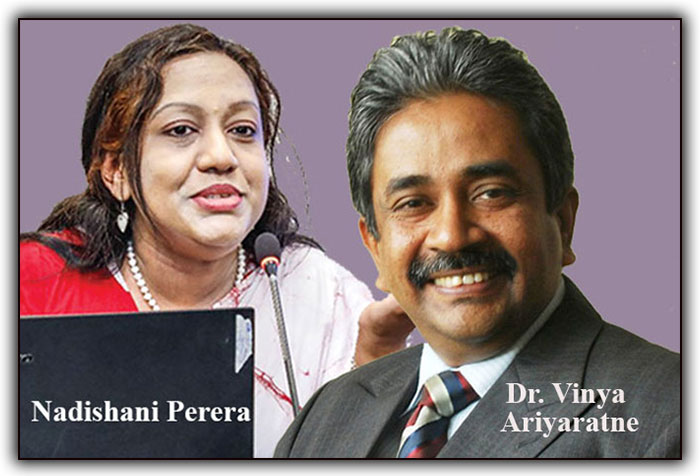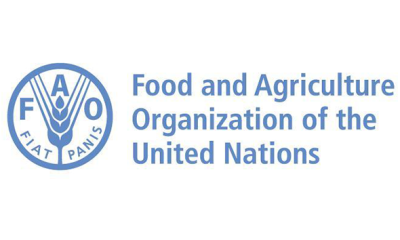News
CSOs protest and exit from OGP over Govt’s crackdown on democratic rights of people

Hastened passage of Online Safety Act through parliament and proposed anti-terror laws ignite outrage
Civil society organizations (CSOs) involved in the collaborative development of the third National Action Plan have collectively decided to withdraw from the Open Government Partnership (OGP) in protest against the Government’s hastening the passage of the Online Safety Bill through parliament and its intention to enact draconian anti-terrorism laws, despite widespread public opposition.
CSOs said that these actions of the Government are aimed at suppressing the civic space and fundamental freedoms of the people, and therefore clearly contradict the fundamental principles of the OGP.
As the co-convenors of the CSOs in the OGP process in Sri Lanka, Transparency International Sri Lanka (TISL) and Sarvodaya Shramadana Movement, on Thursday wrote to the President to officially inform him of this collective decision.
Full text of the letter titled: ‘Civil Society Organisations Withdraw from the Open Government Partnership in Sri Lanka’: “In our capacity as co-convenors of the civil society organisations involved in the Open Government Partnership (OGP) process in Sri Lanka, we write to communicate the collective decision of the group, to withdraw from the ongoing collaborative efforts with the Presidential Secretariat to create Sri Lanka’s third National Action Plan (NAP). This decision is taken after careful consideration and in response to alarming developments in the country that are in direct contradiction to the fundamental principles of the OGP.
“Civil society organisations in Sri Lanka have been actively involved in the OGP process since 2015, consistently advocating for transparent, accountable, and participatory governance. The formulation of the two previous National Action Plans faced numerous challenges, including administrative transfers and lack of political will. Despite past challenges and lack of sustained interest and dedication to fulfilling commitments, with some reservations that were communicated, civil society organisations demonstrated their commitment by agreeing to contribute to the development of the third National Action Plan.
“However, recent actions of the Government, specifically the purported passage of the Online Safety Act and attempts to introduce a draconian anti-terrorism law despite widespread opposition, have compelled us to take this principled stance against the suppression of civic space and the violation of fundamental freedoms. There have been serious concerns raised regarding the purported Online Safety Act and the Anti-Terrorism Bill, specifically on their potential to stifle information-sharing, questioning, critique, dissent, and protest by citizens.
“Despite our appeals to the government to reconsider these bills, the Online Safety Bill was recently certified without certain amendments mandated by the Supreme Court in its determination. This constitutes a breach of the constitutional safeguards intended for seeking legal remedies through the courts in response to legislative attempts to enact unconstitutional laws. It is an unprecedented breach of the checks and balances fundamental to a constitutional democracy and marks a further, dangerous step in the democratic backsliding that Sri Lanka is witnessing.
“Further, this proactive pursuit of oppressive and draconian laws represents a clear violation of principles upheld by OGP. It undermines the core tenets of open governance, transparency, and accountability that the OGP aims to promote and violates even the sense of limited trust that CSOs had in the process. For citizens to freely participate in defining, shaping, and monitoring government policies and programmes, there needs to be an enabling environment that encourages freedom of expression, dissent, and constructive dialogue. Constraints on online expression and discourse on societal problems being treated as national security threats impede this essential environment. The departure from democratic principles raises significant concerns about the government’s commitment to upholding fundamental freedoms and maintaining an inclusive and participatory approach to governance.
“Therefore, we demand that the Government immediately withdraw the purported Online Safety Act and the proposed Anti-Terrorism law. While taking this decisive step to withdraw from the OGP initiative, we remain committed to the ideals of the OGP, and remain ready to re-engage in the process, when the government signals through concrete action, that it is committed to the principles of open, accountable, participatory governance in good faith, and creates an environment conducive to the exercise of civic freedoms.”
The letter signed by Nadishani Perera, Executive Director, Transparency International Sri Lanka and Dr. Vinya Ariyaratne, President, Sarvodaya Shramadana Movement has also been copied to Chandima Wickramasinghe, Additional Secretary to the President, Presidential Secretariat and Shreya Basu, Deputy Director – Country Support, Open Government Partnership.
The OGP is a multi-stakeholder initiative focused on improving government transparency, ensuring opportunities for citizen participation in public matters, and strengthening mechanisms for public accountability.
More than 70 countries, a growing number of local governments and thousands of civil society organizations are members of OGP. Under the OGP, all participating countries are required to develop a two-year National Action Plan through a multi-stakeholder process to implement governance initiatives in prioritized sectors in collaboration with civil society.
Since 2015, Sri Lanka has been internationally committed through its membership in the OGP. Since then, two National Action Plans have been prepared, but the implementation faced various challenges.
News
US sports envoys to Lanka to champion youth development

The U.S. Embassy in Colombo welcomed the U.S. Sports Envoys to Sri Lanka, former National Basketball Association (NBA) and Women’s National Basketball Association (WNBA) players Stephen Howard and Astou Ndiaye, from June 8 through 14.
The Public Diplomacy section of the U.S. Embassy said that it would launch a weeklong basketball program intended to harness the unifying power of sports, made possible through collaboration with Foundation of Goodness and IImpact Hoop Lab.
While in Sri Lanka, Howard and Ndiaye, both retired professional basketball players, will conduct a weeklong program, Hoops for Hope: Bridging Borders through Basketball. The Sports Envoys will lead basketball clinics and exhibition matches and engage in leadership sessions in Colombo and Southern Province for youth aged 14-18 from Northern, Uva, Eastern and Western Provinces, offering skills and leadership training both on and off the court. The U.S. Envoys will also share their expertise with the Sri Lanka Basketball Federation, national coaches, and players, furthering the development of basketball in the country. Beyond the clinics, they will collaborate with Sri Lankan schoolchildren to take part in a community service project in the Colombo area.
“We are so proud to welcome Stephen and Astou as our Sports Envoys to Sri Lanka, to build on the strong people-to-people connections between the United States and Sri Lanka,” said U.S. Ambassador Julie Chung. “The lessons that will be shared by our Sports Envoys – communication, teamwork, resilience, inclusion, and conflict resolution – are essential for leadership development, community building, equality, and peace. The U.S. Sports Envoy program is a testament to our belief that sports can be a powerful tool in promoting peace and unity.”
News
Rahuman questions sudden cancellation of leave of CEB employees

SJB Colombo District MP Mujibur Rahuman in parliament demanded to know from the government the reasons for CEB suspending the leave of all its employees until further notice from Thursday.
MP Rahuman said that the CEB has got an acting General Manager anew and the latter yesterday morning issued a circular suspending leave of all CEB employees with immediate effect until further notice.
“We demand that Minister Kanchana Wijesekera should explain this to the House. This circular was issued while this debate on the new Electricity Amendment Bill was pending. There are many who oppose this Bill. The Minister must tell parliament the reason for the urge to cancel the leave of CEB employees,” the MP said.However, Speaker Mahinda Yapa Abeywardena prevented Minister Wijesekera responding to the query and said that the matter raised by MP Rahuman was not relevant.
News
CIPM successfully concludes 8th Annual Symposium

The Chartered Institute of Personnel Management (CIPM) successfully concluded the 8th Annual CIPM Symposium, which took place on 31st May 2024. Themed “Nurturing the Human Element—Redefining HRM in a Rapidly Changing World,” the symposium underscored the pivotal role of human resource management (HRM) in today’s dynamic global landscape. Since its inception in 1959, CIPM has been dedicated to advancing the HR profession through education, professional development, and advocacy, solidifying its position as Sri Lanka’s leading professional body for HRM.
Ken Vijayakumar, the President of the CIPM, graced the occasion as the chief guest. The symposium commenced with the welcome address by the Chairperson, Prof. Arosha Adikaram, followed by the Web Launch of the Symposium Proceedings and Abstract Book by the CIPM President. The event featured distinguished addresses, including a speech by Chief Guest Ken Vijayakumar, President of CIPM, and an address by Guest of Honor Shakthi Ranatunga, Chief Operating Officer of MAS Holdings Pvt. Ltd., Sri Lanka.
The symposium also featured an inspiring keynote address by Prof. Mario Fernando, Professor of Management and Director of the Centre for Cross Cultural Management (CCCM) at the University of Wollongong, Australia.
Vote of Thanks of the inauguration session was delivered by Dr. Dillanjani Weeratunga, Symposium Co-chair.
The symposium served as a comprehensive platform for researchers to present their findings across a wide range of critical topics in HRM. These included Cultural Diversity and Inclusion, Talent Development and Retention, Ethical Leadership and Corporate Social Responsibility, Adapting to Technological Advancements, Mental Health and Well-being at Work, Global Workforce Challenges, Employee Empowerment, and Reskilling and Upskilling.
The plenary session was led by Prof. Wasantha Rajapakse. Certificates were awarded to the best paper presenters during the valedictory session, followed by a vote of thanks delivered by Kamani Perera, Manager of Research and Development.
The annual symposium of CIPM was a truly inclusive event, attracting a diverse audience that spanned undergraduates, graduates, working professionals, research scholars and lecturers. This widespread interest highlights the symposium’s significance in the field of HRM, offering a unique opportunity for everyone to network and learn from scholarly brains.The CIPM International Research Symposium was sponsored by Hambantota International Port, Sri Lanka Institute of Information Technology (SLIIT), E B Creasy & Co. PLC, and Print Xcel Company.














